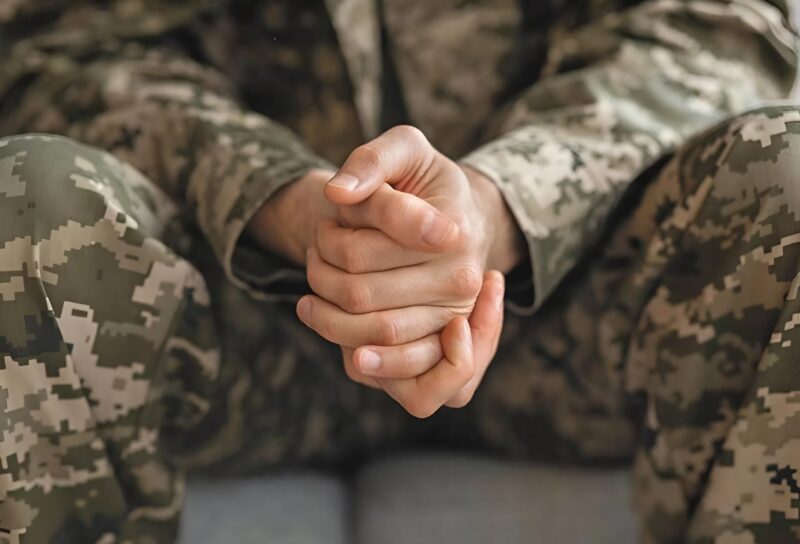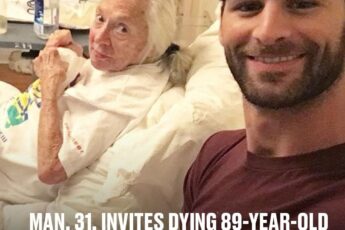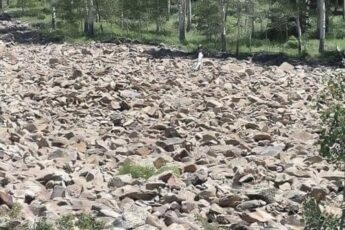“Get out of here, woman! In my company, there is no place for people like you!” the captain barked, his voice echoing off the cold, cracked walls of the barracks. His tone was sharp and dismissive, the kind that came from years of unchecked power. But what he didn’t know—what he couldn’t have even imagined—was who stood before him.
The air inside the barracks was heavy, thick with the stench of damp rot, unwashed bodies, and lingering smoke from a fire long dead. Every breath Anna took seemed to coat her lungs with dust and despair. The floor was layered in grime, and the metal bunks creaked under the weight of soldiers who sat like forgotten shadows—silent, hollow-eyed, their uniforms frayed, their boots barely holding together. There was no laughter, no conversation, not even a murmur of spirit. Just the dull silence of men who had given up.
Anna stepped in slowly, her polished boots clicking against the concrete, the only sound in the lifeless room. She had come expecting discipline, pride, and purpose. But what she found instead looked more like the aftermath of a disaster zone. Her stomach tightened in anger. She had seen poor conditions before, but nothing like this.
She marched straight toward the captain, her presence cutting through the haze like a blade.
— “Why are your soldiers living in these conditions?” she demanded, her voice sharp, unwavering. “Where is their food? Their clothing? Their dignity? This isn’t a military unit—it’s a disgrace.”
The captain, caught off guard by her directness, sneered and crossed his arms. He was a tall man, built like a brick wall, and he seemed to take pride in towering over her.
— “And who are you to ask questions? What are you, some office clerk trying to play soldier? You should be careful with that tone—unless you enjoy unemployment.”
Anna didn’t flinch.
— “I’m not afraid of you,” she said, her eyes locked on his. “What I’m afraid of is the rot spreading from people like you. I won’t stand by while men who signed up to defend their country are left to rot in filth.”
That’s when the captain stepped forward, grabbing her collar with one rough hand, his breath hot with anger.
— “I said get out! There’s no place here for people like you!”
But Anna didn’t pull away. She looked him straight in the eye and, in a calm voice that carried far more weight than a shout, said:
— “You’re wrong. I came here precisely for you.”
The captain blinked, stunned for a moment.
— “What did you say?”
Anna reached into her jacket and pulled out a black leather ID holder. She flipped it open and raised it so it was just inches from his face.
— “Lieutenant Anna Petrova. Internal Investigations. You’ve been under review for months. Misuse of funds. Abuse of power. Theft from your own soldiers. We have the bank transfers. The witness statements. The procurement records. It’s over.”
The captain’s mouth opened as if to speak, but no words came. His face drained of color.
— “You… you have no proof,” he mumbled, though his voice had lost all authority.
Anna stepped back and, without another word, reached out and ripped the insignia from his shoulders. The gesture was swift and final. At that exact moment, two military police officers stepped into the room behind her. Their boots pounded against the floor as they moved in. The captain backed up instinctively, but it was too late. One officer twisted his arms behind his back, the other snapped the handcuffs on with practiced precision.
The silence in the barracks shifted. The soldiers—once still and lifeless—began to stir. One sat up straighter. Another stood. It was as if someone had opened a window and let the light back in.
Anna turned to face them, her voice steady.
— “This ends today. You will be given new supplies, new uniforms, proper food. There is no longer any place here for traitors.”
A murmur spread through the room, not of fear or despair—but of something unfamiliar in this place: hope.









